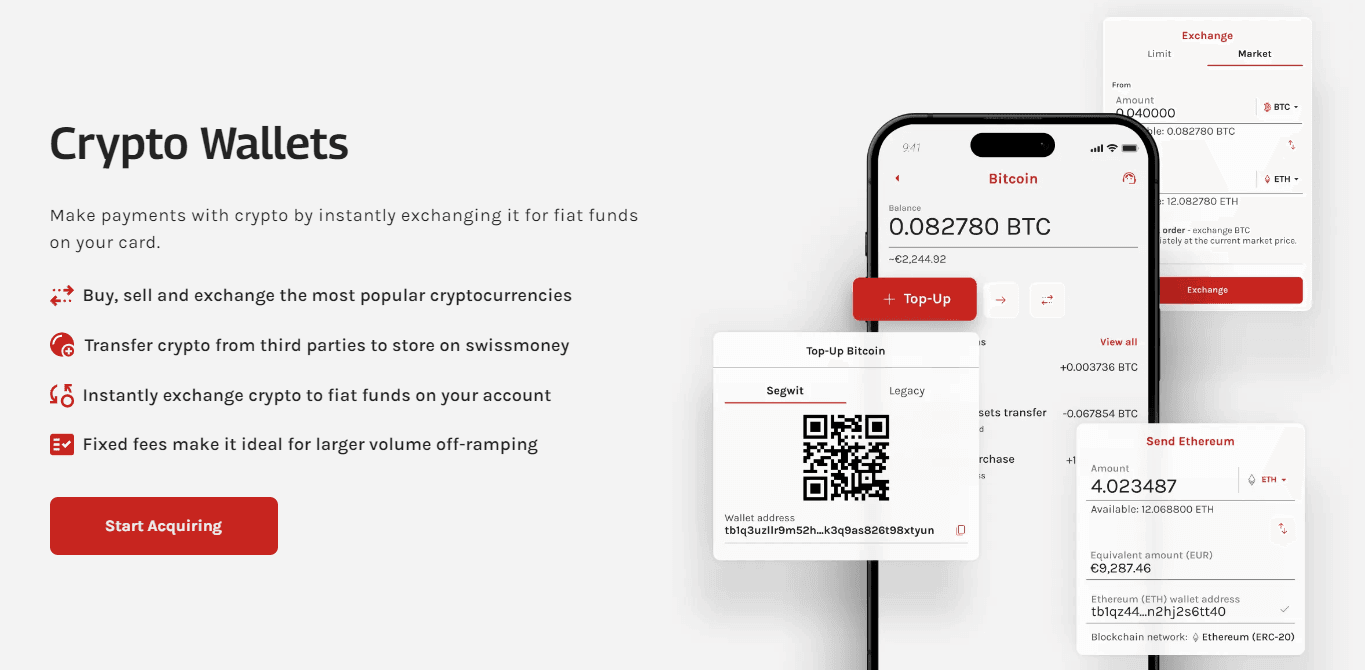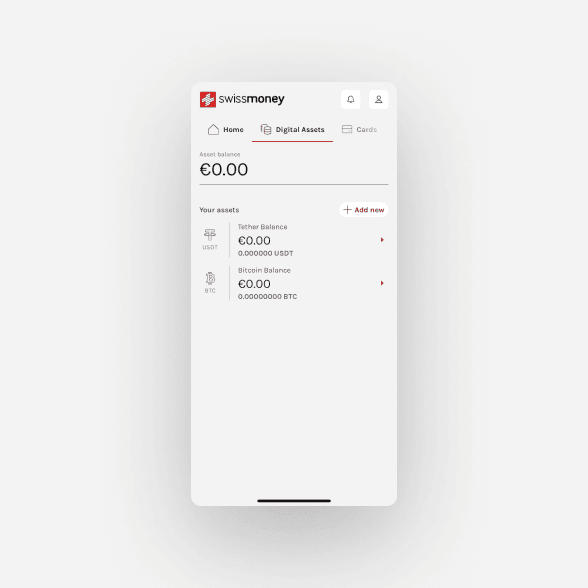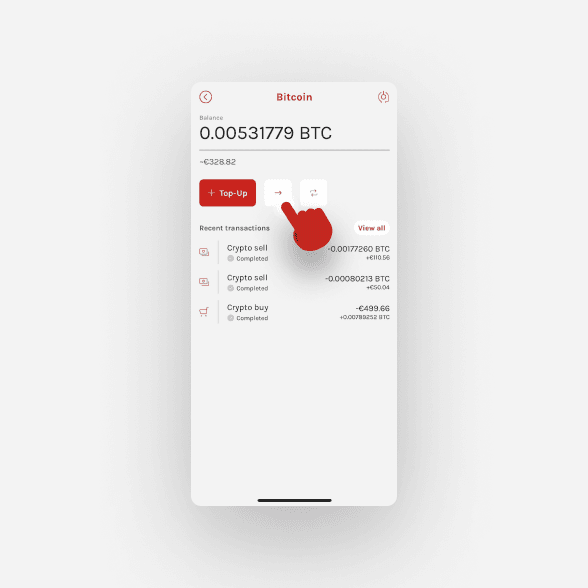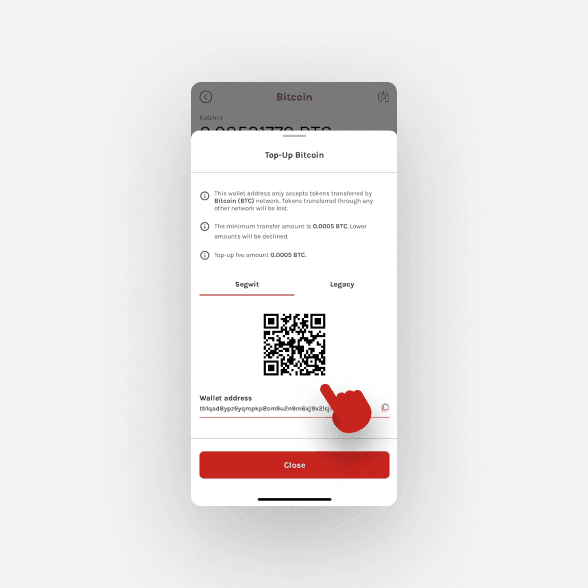Cryptocurrencies have surged in popularity, with over 300 million users worldwide and a market cap exceeding $2 trillion.
The global user base increased by nearly 190% between 2018 and 2020 and continues to grow rapidly, especially in regions like Africa, Asia, and South America. According to Statista, by 2028, the number of users is expected to reach 992.50 million.
If you're new to crypto, it is essential to understand what a crypto wallet is and how it works. This guide will explain the different types of crypto wallets, their features, and how to choose the best one for your needs.

What is a crypto wallet?
A crypto wallet is a digital tool that securely stores your public and private keys, enabling you to manage cryptocurrency transactions.
Unlike a physical wallet that holds cash, a crypto wallet doesn't store actual cryptocurrencies but provides access to your digital assets on the blockchain.
Here are some essential concepts related to crypto wallets:
- Public and private keys: These cryptographic keys are necessary for accessing and managing your crypto assets. The public key acts like a bank account number, while the private key functions like a PIN, ensuring only you can authorize transactions.
- Types of wallets: There are several types, including hardware, mobile, software, and paper wallets. Each type offers different levels of security and convenience.
- Security and accessibility: Crypto wallets are designed to keep your private keys secure, with options ranging from hot wallets (connected to the internet) for easy access, to cold wallets (offline) for enhanced security.
📚Read more: What is Cold Storage in Crypto?
How does a crypto wallet work?
Crypto wallets work by storing your public and private keys, which are necessary for authorizing cryptocurrency transactions. These keys allow you to access your crypto assets on the blockchain network, making transactions secure and verifiable.
- Public key: The public key is used to receive cryptocurrencies. It can be shared freely, like a bank account number, to facilitate incoming transactions.
- Private key: The private key is used to sign and authorize transactions, ensuring that only you can access and manage your crypto assets. It must be kept secure and never shared.
- Types of wallets: Wallets can be categorized into hot wallets and cold wallets. Hot wallets are connected to the internet, offering convenience for frequent transactions but posing higher security risks. Cold wallets are offline, providing greater security for the long-term storage of large amounts of cryptocurrency.
- Transaction process: When you initiate a cryptocurrency transaction, your wallet uses your private key to sign and authorize the transfer. The transaction is then broadcast to the blockchain network for validation, ensuring it is secure and verifiable.
Understanding how crypto wallets work can help you better manage your digital assets and ensure their security.
Whether you choose a hot wallet for daily transactions or a cold wallet for secure storage, selecting the right crypto wallet is crucial for protecting your investments.

Why do you need a crypto wallet?
A crypto wallet is essential for anyone looking to manage and use their cryptocurrencies securely. It provides a safe and user-friendly way to store, send, and receive digital assets.
- Security: Crypto wallets protect your private keys, ensuring that only you can access and authorize transactions with your digital assets. This helps prevent unauthorized access and potential theft.
- Convenience: A crypto wallet makes it easy to manage your cryptocurrency transactions, whether sending funds to a friend, paying for goods and services, or trading on a cryptocurrency exchange.
- Control: Using a non-custodial wallet gives you full control over your crypto assets. You are not reliant on third parties and retain ownership of your private keys, providing greater security and peace of mind.
- Access to various types: Crypto wallets come in multiple forms, such as hardware, mobile, and software wallets, allowing you to choose the one that best fits your needs.
- Ease of transactions: Many mobile wallets make it easy to conduct secure and quick transactions, with features like QR codes and biometric authentication.
- Investment management: For those holding significant amounts of cryptocurrency, a cold wallet offers a secure way to store assets offline, minimizing the risk of online threats.
- Integration with financial services: Some advanced wallets, like those offered by swissmoney, allow seamless conversion between crypto and fiat currencies, IBAN account management, and the use of crypto debit cards for everyday spending.
What are the different types of crypto wallets?
Cryptocurrency wallets come in various forms, each offering unique features and security levels. Understanding the different types of wallets can help you choose the best one for your needs.
Hardware wallets
Hardware wallets are physical devices that store your private keys offline, making them highly secure against online threats.
They resemble USB drives and are considered cold wallets due to their offline nature. Popular options include Ledger and Trezor.
- Pros: Highly secure, offline storage, immune to online hacks.
- Cons: Can be expensive and less convenient for frequent transactions.
Paper wallets
Paper wallets are a form of cold storage where your private and public keys are printed or written on paper. They are highly secure if appropriately stored but can be lost or damaged easily.
- Pros: Offline storage, immune to online hacks.
- Cons: Easily lost or damaged, requires careful handling.
Each type of crypto wallet serves different needs. Whether you prioritize security with a hardware wallet, convenience with a mobile wallet, or simplicity with a paper wallet, understanding these options helps you manage your crypto assets effectively.
Software wallets
Software wallets are programs installed on your computer or mobile device. They include desktop wallets and online wallets, and depending on their connectivity, they offer various features.
Desktop wallets are installed on your computer, offering control over your private keys and robust security features.
Online wallets are accessed via web browsers, providing easy access from any device but with a higher risk of online attacks.
- Pros: Versatile, user-friendly, and accessible.
- Cons: Security depends on the device and network used.
Mobile wallets
Mobile wallets are apps designed for smartphones. They provide a convenient way to manage and use your crypto on the go.
These hot wallets are connected to the internet, making them easy to use for daily transactions.
- Pros: Convenient, easy to use, supports QR codes and biometric authentication.
- Cons: More vulnerable to online threats, dependent on your phone's security.
📚Read More: Different Types of Crypto Wallets

Pros & cons of crypto wallets
Cryptocurrency wallets offer various benefits and drawbacks depending on their type and usage. Understanding these pros and cons can help you make an informed decision about which wallet best suits your needs.
| Pros | Cons |
| Security | Vulnerability |
| Control | Complexity |
| Convenience | Cost |
| Integration | Risk of loss |
Pros:
- Security: Hardware and paper wallets provide offline storage, protecting your private keys from online hacks.
- Control: Non-custodial wallets allow you to retain full control over your keys and crypto assets.
- Convenience: Mobile and software wallets offer easy access and user-friendly interfaces for daily transactions.
- Integration: Many wallets integrate with various services, such as crypto exchanges, making it easier to manage your assets.
Cons:
- Vulnerability: Hot wallets, such as mobile and online wallets, are connected to the Internet, making them more susceptible to hacking.
- Complexity: Managing non-custodial wallets and hardware wallets can be challenging for beginners due to the need for secure handling of keys and seed phrases.
- Cost: Hardware wallets can be expensive compared to software or online wallets.
- Risk of loss: Paper and hardware wallets can be lost or damaged, potentially preventing access to crypto assets.
By weighing these pros and cons, you can choose the crypto wallet that best fits your security needs, convenience preferences, and overall usage patterns.
Which type of crypto wallet is best for me?
Choosing the best crypto wallet depends on your needs and how you plan to use your cryptocurrencies. Here’s a guide to help you decide which type of crypto wallet suits you best.
- For beginners: If you're new to crypto, a mobile wallet or a software wallet is user-friendly and convenient for everyday transactions. These wallets provide easy access to your crypto and are great for small amounts.
- For security-focused users: A hardware wallet or a paper one offers the highest level of security. These wallets keep your keys offline, making them less vulnerable to hacking.
- For frequent traders: If you trade often, a hot wallet, such as an online wallet or desktop wallet, is ideal. These wallets offer quick access to your assets and integrate well with cryptocurrency exchanges.
- For large holdings: If you hold significant amounts of crypto, consider combining hot and cold wallets. This approach balances security and convenience, protecting most of your assets in a cold wallet while keeping some accessible in a hot wallet.
📚Read More: Best Crypto Wallets to Withdraw Money for Beginners
How to choose the right crypto wallet
Choosing the right crypto wallet involves evaluating your needs, security preferences, and how you plan to manage your cryptocurrencies. Here are some tips to help you make the right choice.
Evaluate your needs
Consider how you will use your crypto. Are you making frequent transactions, or are you holding your assets long-term?
Frequent users might prefer hot wallets for ease of access, while long-term holders might prioritize the security of cold wallets.
Assess security features
Look for wallets with robust security features. A good wallet should have strong encryption, two-factor authentication, and support for biometric authentication.
For non-custodial wallets, ensure a secure method for storing your keys and seed phrases.
Consider the user experience
Choose a wallet that is easy to use and has a user-friendly interface. Mobile and software wallets often provide the best experience for beginners, offering features like QR code scanning and simple transaction processes.
Check compatibility
Ensure the wallet supports the cryptocurrencies you plan to store. Some wallets only support a limited number of coins, while others are compatible with multiple cryptocurrencies.
📚Read More: How to Choose the Right Crypto Wallet
How to create a crypto wallet
Creating a cryptocurrency wallet is an easy process that ensures you can manage your digital assets securely. Here are the steps to create a crypto wallet.
- Choose your wallet type: Based on your security and usage needs, decide whether you need a hardware wallet, mobile wallet, software wallet, or paper wallet.
- Choose your wallet provider: Select a reliable wallet provider that supports the cryptocurrencies you plan to use. Options include software wallets like Exodus, mobile wallets like swissmoney, and hardware wallets like Ledger.
- Download or set up the wallet: For software and mobile wallets, download the app from the official website or app store. For hardware wallets, follow the setup instructions included with the device.
- Create and secure your wallet: Open the app or device and create your wallet. This involves setting a strong password, securing your private key, and backing up your seed phrase in a safe place.
- Add funds to your wallet: Once your wallet is set up, you can add cryptocurrency by transferring funds from an exchange or another wallet.
Following these steps, you can create a secure wallet to manage your digital assets effectively.
📚Read More: How to Create a Crypto Wallet for Beginners
How to use a crypto wallet to send and receive cryptocurrency
Using a crypto wallet to send and receive cryptocurrency is simple and involves a few easy steps. Here’s how to do it:
1. Open your crypto wallet

Log in to your wallet app or device. Ensure you have access to your private key and that your wallet is connected to the internet if using a hot wallet.
2. Sending cryptocurrency

- Enter the recipient's wallet address: Copy and paste the recipient's wallet address into the designated field. Double-check the address to ensure it is correct.
- Choose the amount: Enter the amount of cryptocurrency you want to send. Review the transaction details, including any transaction fees.
- Authorize the transaction: Use your private key or biometric authentication to authorize the transaction. Confirm and send the cryptocurrency.
3. Receiving cryptocurrency:

- Generate your wallet address: Open your wallet and navigate to the "Receive" section. Copy your wallet address or use the provided QR code.
- Share your address: Provide your wallet address to the sender. Ensure they have copied it correctly.
- Confirm receipt: Once the sender has completed the transaction, check your wallet to confirm that you have received the cryptocurrency.
Security best practices for storing cryptocurrency
Storing cryptocurrency securely is essential to protect your digital assets from theft and loss. Here are the key security best practices for storing cryptocurrency.
- Use a hardware wallet: Hardware wallets, like Ledger and Trezor, are physical devices that store your private key offline, making them highly secure against online threats.
- Enable two-factor authentication (2FA): Always enable 2FA on your wallets and cryptocurrency exchange accounts. This adds an extra layer of security, requiring a second verification form to access your account.
- Keep your private keys private: Never share your private key with anyone. Store them securely offline, and consider using a cold wallet or paper wallet for long-term storage.
- Use strong, unique passwords: Ensure your wallet and exchange accounts have strong, unique passwords. Avoid reusing passwords and consider using a password manager to track them.
- Backup your seed phrase: When setting up a new wallet, you'll receive a seed phrase. Write it down and store it in a secure, offline location. This phrase is crucial for recovering your wallet if you lose access.
- Regularly update your wallet software: Keep your wallet software and any associated apps up to date. Updates often include security enhancements that protect against the latest threats.
- Be cautious with online wallets: Online wallets and hosted wallets are more vulnerable to hacking. Use them for small amounts of cryptocurrency and consider moving larger amounts to more secure storage options like hardware wallets or cold storage.
Following these security best practices can significantly reduce the risk of losing your cryptocurrency to theft or other security breaches.
📚Read More: Safest Ways to Store Your Crypto for the Long-Term
Conclusion
Understanding what a crypto wallet is and how it works is crucial for anyone involved in cryptocurrency. Crypto wallets store your public and private keys, allowing you to manage and secure digital assets.
There are various types of wallets, including hardware, mobile, software, and paper wallets, each offering different levels of security and convenience. Choosing the right wallet depends on your specific needs, such as how frequently you trade and the cryptocurrency you hold.
By following best security practices, you can ensure your crypto assets remain safe from threats. Whether you are a beginner or an experienced user, having the right cryptocurrency wallet is essential for effective cryptocurrency management.
FAQs
Can I create my own crypto wallet?
Yes, you can create your own cryptocurrency wallet. Many wallet providers offer user-friendly apps and devices to help you set up your wallet. You can choose from software, hardware, and mobile wallets.
Do I need to have a crypto wallet?
Yes, a crypto wallet is necessary to store, send, and receive cryptocurrencies securely. It allows you to manage your private key, essential for accessing and authorizing transactions with your digital assets.
Is a crypto wallet safe?
A crypto wallet can be very safe if you follow security best practices. Hardware and cold wallets provide high levels of security by keeping your keys offline. To enhance safety, always enable two-factor authentication and use strong passwords.
What is the best crypto wallet for beginners?
For beginners, mobile and software wallets are generally the best options due to their ease of use and convenience. Examples include swissmoney, Trust Wallet, and Exodus. These wallets offer user-friendly interfaces and essential security features.
What's the difference between a crypto wallet and an exchange?
A crypto wallet stores your private key and allows you to manage your cryptocurrency securely. On the other hand, an exchange is a platform where you can buy, sell and trade cryptocurrencies.
Many exchanges offer custodial wallets, but using a separate wallet gives you more control over your keys.
📚Related: Best Custodial Wallets for Crypto
Is it better to keep your crypto in a wallet or exchange?
It is generally safer to keep your cryptocurrency in a digital wallet rather than an exchange. Exchanges are more vulnerable to hacking, and storing your crypto in a wallet, especially a hardware wallet, provides better security for your keys and assets.
Read more:
- Crypto Wallets That Allow Transfer to Bank Account
- Crypto Wallet vs. Exchange: Which Suits Your Cryptocurrency Strategy
- Guide to Managing Multiple Crypto Wallets Efficiently
- How to transfer Bitcoin from One Wallet to Another
- Best Multi-chain Cryptocurrency Wallets
- Best Ethereum Wallets for Secure ETH Storage

